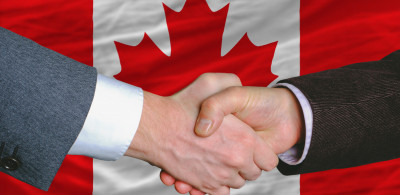During the course of the past year, there has been a lot of action on the international scene for Canada with regard to the free trade agreements. Whether it was the NAFTA renegotiations, the signing of the Comprehensive Economic and Trade Agreement (CETA), or the signing of the Asian Pacific Free Trade Agreement, we can say that the trading partners have multiplied and renewed for Canada. In the article that follows, W2C provides you with an overview and an update of the different agreements involving Canada.
NAFTA
The renegotiations between Canada, the United States and Mexico, which have begun in the middle of August 2017, are, as of today, at the conclusion of the 7th round. The next round of renegotiations should take place in Washington during the month of April 2018. Even if significant developments have been made on a technical level, several contentious issues are yet to be solved. Among these: the Canadian supply management and the dispute settlement. Furthermore, in parallel to the renegotiations, other debates have bloomed, complicating, in some way, relations between Canada and the United States. We note, for example, timber, steel and aluminium, and solar panel issues.
Although barriers jeopardize the issue of an agreement between the three countries, according to the latest information, Minister Chrystia Freeland has mentioned that she intended to address the issues between Canada and the United States, such as the surcharges that the United States wants to tax Canadian industries on steel and aluminium exportations, separately. Also, Canada intends to remain firm on several points, in order to vigorously defend the interests or Canadian Workers.
Global and progressive Trans-Pacific Partnership
Canada was bent on defending more progressive points before reaching an agreement with the other Countries members of this agreement that binds several Asian and Pacific Countries. Negotiations on this agreement, which were pursued in 2017, led to, despite the withdrawal of the United States, a settlement in the month of March 2018.
This agreement unites 11 Countries including, Canada, Australia, Brunei, Chile, Japan, Malaysia, Mexico, New-Zealand, Peru, Singapore and Vietnam. The agreement provides for "the removal of custom barriers between the Member Countries, and the implementation of common standards in several sectors of activity."
CETA
In addition to the NAFTA, which is currently under negotiation and the Global and progressive Trans-Pacific Partnership that just has been signed, Canada has also concluded an agreement with the European Union in September 2017. The Comprehensive Economic and Trade Agreement (CETA) allows, among other factors, to reduce and gradually eliminate custom duties between Canada and the European Union. It is the agreement with the largest scale having ever been negotiated by Canada. 98% of the tariff barriers between Canada and the European Union have been eliminated. When the agreement will totally be implemented, 99% of the tariff barriers should be eliminated.
Although the vast majority of the products (98% of the tariff lines) is exempt of custom duties, thanks to the CETA since September 21, 2017, some products are still subject to certain regulations. To mention but a few, textiles and clothing require an import licence and are subject to quotas related to origin.
Mercosur
Lately, Canada has announced that negotiations will begin with Countries that are part of MERCOSUR, such as Brazil, Argentina, Paraguay, Uruguay and Venezuela. The first negotiation round started in the month of March 2018 in Ottawa, Canada. As in the Global and Progressive Trans-Pacific Partnership, the Canadian Government feels that it is important that the negotiations and the result of an agreement be influenced by a progressive vision that includes, as an example, gender equality and an environment assessment.
Conclusion
Even though the NAFTA negotiations continue to be difficult, Canada will, by its signed agreements or negotiations that will be undertaken, rely on other commercial partners to make its economy bloom internationally. We will see, in the next following months if Canada will have succeeded at the game and if he will succeed in developing and solidifying relations between the Canadian industries and the international partners. Finally, it should not be forgotten that these new agreements will have consequences on custom duties between the Country signatories and on the related documentary procedures. W2C team remains at your disposal for any question you may have relating to customs procedures.
To find out more:
